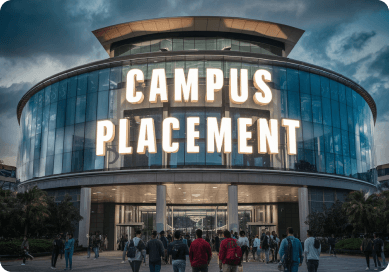Enter OTP



Toulouse, France

Toulouse, France

Cost Of Living

Undergraduate Fees International Students

Post Graduate Fees International Students

The Federal University of Toulouse Midi-Pyrénées stands out for its strong focus on research, innovation, and interdisciplinary learning. With a consortium of 15 institutions, it brings together top researchers and experts across fields like AI, engineering, and entrepreneurship. The university consistently ranks among the top research hubs in the region and is internationally recognized for its academic output. It offers students access to research grants, fellowships, and industry-backed funding opportunities. A low student-to-faculty ratio ensures personalized academic guidance. This dynamic ecosystem prepares students to lead in both academia and industry.
A cardiologist turned French politician and diplomat, Douste‑Blazy earned his medical credentials at Toulouse III an... View More
A cardiologist turned French politician and diplomat, Douste‑Blazy earned his medical credentials at Toulouse III and practiced at Toulouse University Hospital from 1988 to 2016. He later served as mayor of Lourdes, then Toulouse, and took on ministerial roles in Culture, Health and Foreign Affairs. From 2017 to 2021 he was Special Adviser on Innovative Financing for Development to the UN Secretary‑General. He has also taught at Harvard Medical School as a visiting professor since 2016. His dual career in medicine and public service reflects the broad influence of the university’s training View Less
Jacquard earned a doctorate in genetics (1970) and a state doctorate in human biology (1972) from Toulouse III. He bec... View More
Jacquard earned a doctorate in genetics (1970) and a state doctorate in human biology (1972) from Toulouse III. He became a respected geneticist, lecturer and popularizer of science, writing extensively on society and ethics. An essayist and public intellectual, Jacquard challenged established ideas about inequality and environmental responsibility. His academic work and voice in public debate illustrate the humanistic breadth added to scientific training at the university View Less
Graduating with a PhD in Astronomy and Space Studies in 1996, Chadid is now a Franco‑Moroccan astronomer leading inter... View More
Graduating with a PhD in Astronomy and Space Studies in 1996, Chadid is now a Franco‑Moroccan astronomer leading international polar research programs. She’s pioneering the installation of a major astronomical observatory in Antarctica. Her work bridges observational astronomy and extreme environment science. Chadid’s path shows how Toulouse’s research ecosystem supports scholars working on global scientific frontiers View Less
With her PhD in astrophysics and space techniques from Toulouse III in 1992, Charbonnel is now Associate Professor at ... View More
With her PhD in astrophysics and space techniques from Toulouse III in 1992, Charbonnel is now Associate Professor at Geneva Observatory and Research Director at CNRS. Her expertise lies in stellar structure and evolution. She has become a leading figure in theoretical astrophysics. Charbonnel’s career demonstrates the university’s strength in producing world-class researchers in space sciences View Less
A cognitive science researcher born in 1983, Avarguès‑Weber studied at Toulouse III and has made significant contri... View More
A cognitive science researcher born in 1983, Avarguès‑Weber studied at Toulouse III and has made significant contributions to understanding insect cognition, especially bee learning and memory. Her work challenges assumptions about intelligence in small-brained creatures. She publishes widely and is recognized internationally. Her trajectory shows how interdisciplinary science thrives in the Toulouse research community View Less
After completing a PhD in genetics and molecular biology in 1995, Bergès became director of the French national plant g... View More
After completing a PhD in genetics and molecular biology in 1995, Bergès became director of the French national plant genomic center (CNRGV) at INRA from 2003 onwards. She's been honored as a Chevalière of the Legion of Honor since 2015. Bergès’s leadership in plant genomics underscores Toulouse’s capacity to nurture cutting‑edge research and institutional excellence in life sciences View Less
Cazenave graduated from Toulouse III and went on to become an oceanographer and engineer emeritus at CNES. In 2004 she... View More
Cazenave graduated from Toulouse III and went on to become an oceanographer and engineer emeritus at CNES. In 2004 she was elected to the French Academy of Sciences in the Sciences of the Universe section, and in 2010 she was made an Officer of the Legion of Honor. Her pioneering satellite‑based measurements of sea‑level rise and geodesy reflect the university’s role in training scientists with global impact View Less
Holding a PhD from Toulouse III in 1990, Dubrulle is a French astrophysicist known for her work in fluid dynamics of a... View More
Holding a PhD from Toulouse III in 1990, Dubrulle is a French astrophysicist known for her work in fluid dynamics of astrophysical flows. Her research explores turbulence and nonlinear dynamics in stars and accretion disks. She’s built a strong reputation in European astrophysics. Her academic journey highlights Toulouse’s deep investment in theoretical and computational astrophysics View Less
Laprie earned a doctorate and state doctorate from Toulouse III in computer science in the mid‑1970s, specializing i... View More
Laprie earned a doctorate and state doctorate from Toulouse III in computer science in the mid‑1970s, specializing in fault tolerance and dependable systems. He headed LAAS and later directed it until 2002. A CNRS research director emeritus, Laprie shaped foundational theory on dependability in computer systems. His career shows how the university can incubate scientific leadership in engineering and formal methods View Less
Graduating with a doctorate in computer science from Toulouse III, Cohen served as Mayor of Toulouse from 2008 to 2014... View More
Graduating with a doctorate in computer science from Toulouse III, Cohen served as Mayor of Toulouse from 2008 to 2014. Prior to that, he was a research engineer in computer science at IRIT until 1997. His dual roles in academia and municipal leadership reflect how the university educates professionals who move fluidly between research and public life View Less
The Federal University of Toulouse Midi-Pyrénées offers a robust and well-integrated campus infrastructure spread across the Toulouse region, supporting over 100,000 students. It brings together top-tier engineering schools, research labs, and universities under a unified framework. The campuses are equipped with modern classrooms, state-of-the-art laboratories, digital learning resources, and dedicated research facilities. Students benefit from accessible libraries, advanced computing centers, and shared innovation spaces. Its infrastructure is designed to promote interdisciplinary collaboration between science, technology, and humanities. The strong public transport network also ensures smooth mobility across its various campuses and affiliated institutions.
Student life here is buzzing, thanks to a network of colleges and thousands of international and local students. There are loads of student clubs, music and art events, and science meets culture every other week. The city of Toulouse itself feels like an extended campus—affordable food, public transport, bars, and bike lanes everywhere. Every autumn, a full week of student-led events kicks things off with concerts, exhibitions, and street performances. The university even has its own observatory and student radio. It’s the kind of place where you learn as much outside class as inside.


The university’s career center offers personalized coaching on CVs, cover letters, interviews, and job-search strategies. They host workshops throughout the year on topics like internships, entrepreneurship, and career exploration. A digital portal aggregates internship and job listings, as well as career-planning tools. Regular career fairs and networking events connect students directly with employers and alumni. Students can access mock interview sessions and résumé reviews without appointments. For aspiring entrepreneurs, there’s dedicated guidance on starting ventures and accessing resources.
The below information is required while
completing the university application :
key documents you need to apply for a Bachelor’s degree (Licence) at the Federal University of Toulouse Midi?Pyrénées (Université Toulouse III – Paul Sabatier):
High school diploma (baccalauréat) or equivalent
You must hold a recognized secondary school completion certificate—like the French baccalauréat or an equivalent diploma from your country—to be eligible for first-year admission
Official transcripts and academic records
Include full transcripts for your last two years of high school (or equivalent), showing grades and course details. Documents often must be formally translated into French and officially certified
Proof of French language proficiency
Applicants need at least a B2 level certificate—such as TCF, DELF, DALF, or DUEF—to demonstrate they can follow courses taught in French
Résumé (CV) and motivation letter (lettre de motivation)
Submit a concise, well?written CV (in Europass format if possible) and a motivation letter in French, explaining why you want to study at the university and outlining your academic project
Valid passport (identity document)
A clear copy of your passport (usually including first and last pages) must be included to prove your identity and nationality
Financial proof and health insurance (for international students)
You’ll often need to show evidence of sufficient funds (e.g. bank statements or sponsor letters) and proof of health insurance covering your stay in France
The university regularly recruits for academic, research, technical, and administrative roles across its 15 member institutions. Positions are filled through public exams, direct hires, contracts, or internal transfers. Opportunities span fields like IT, communications, finance, student services, and project coordination. The university also brings in professionals for strategic roles linked to innovation and research development. It promotes diversity, equal opportunity, and inclusion in its hiring practices. Apprenticeships, employer branding, and job fairs also play a key role in attracting top talent.



The Federal University of Toulouse Midi-Pyrénées has earned a strong reputation for research excellence and innovation across multiple disciplines. It consistently ranks among the top research institutions in southern France, with a growing number of publications and international collaborations. The university's researchers lead impactful projects in fields like artificial intelligence, engineering, and health. It has secured major grants and fellowships, attracting global attention and partnerships. Its emphasis on interdisciplinary research and dynamic training has positioned it as a key player in shaping future-ready scholars. These achievements reflect its commitment to advancing knowledge and driving real-world change.


In EduRank’s 2025 global university rankings, the institution placed 15th in France, 580th worldwide, and 2nd in Occitanie. It scored within the top 50% across 188 research disciplines and ranks high in remote sensing (#67 globally), pharmacy (#80), and atomic/molecular physics (#104). With nearly 86 000 publications and over 2.6 million citations, this reflects both volume and global academic influence. That’s a clear signal of sustained, impactful scholarship
On February 10, 2025, Toulouse III officially evolved into the “University of Toulouse”, integrating member institutions like Jean Jaurès, Toulouse INP, ISAE-SUPAERO, ENAC, INSA Toulouse, Champollion, ENSA, ENVT, ENSFEA and CNRS/INSERM bodies. This new experimental public institution unifies research, teaching and health under a single governance structure and expanded budget, marking a major institutional transformation and elevating regional academic clout
In September 2024, Toulouse hosted the prestigious EAIE Congress (European Association for International Education)—Europe's top higher education gathering—drawing more than 7 300 participants. Organized with Toulouse Métropole, regional authorities, and the University of Toulouse network, this was the first time France held the event in 15 years. It showcased the institution’s diplomatic and organizational capabilities and strengthened its global education reputation.
The IPBS, a flagship research unit affiliated with the university, has produced over 2 200 publications, participated in roughly 50 international contracts, supported 300+ PhD theses, filed 70 patents, and incubated eight startups by ~2023. IPBS actively engages in European networks like RESPIRE and EBAM since 2011. These metrics illustrate excellence in biomedical research and technology translation, making it a cornerstone of the university’s life sciences profile
As part of the European Universities initiative, the University of Toulouse leads the UNIVERSEH federal project (European Space University for Earth and Humanity), supported by Erasmus+. Launched under Erasmus‑EDU‑2023‑EUR‑UNIV, this transnational alliance links Toulouse’s science and engineering schools with partner institutions across Europe. It fosters joint degrees, research exchange, innovation, and mobility programs. This achievement emphasizes the university’s European leadership in space education and interdisciplinary scholarship
In the 2022 Shanghai Academic Subject Ranking, the university ranked globally strongest in Remote Sensing (#7), Oceanography (#17), Earth Sciences (#28), Ecology (#37), and Chemistry/Mathematics (#51‑75 bracket). These elite subject rankings reflect years of consistent output and breakthroughs in environmental and planetary research. Globally, it landed around 201–300 overall. That level of recognition underscores its rise as a scientific powerhouse based in the Midi‑Pyrénées region
Through the Operation Toulouse Campus and neOCampus initiative, the university transformed 264 hectares and 390 000 m² of built area into an energy‑efficient, “smart campus,” joined by 11 research labs. This eco‑sustainable pilot campus showcases integrated digital systems, innovative building design, and environmental stewardship. It became a model in France for sustainable higher‑education infrastructure and campus planning
In 2018, a five-year strategic research agreement between Thales and Toulouse III – Paul Sabatier was renewed, continuing collaboration since 2011. This partnership enabled co-development of innovations in satellite communications, ionosphere modelling, multi-material additive manufacturing, physics, chemistry, materials and algorithms. Both parties jointly own multiple patents arising from this work, and students and faculty benefit from direct industry engagement. This sustained link with Thales showcased the university’s prowess in applied research and cemented its role in technology transfer and industrial innovation.
In 2018, the Espace Clément Ader opened as part of Toulouse Aerospace: a 26 140 m² innovation hub housing the Institut Clément Ader within the university network. This center brings together engineering, aerospace and academic institutions including ISAE‑SUPAERO and ENAC, blending urban design and heritage preservation. It serves as a locus for research and industry collaboration in aeronautics and space, amplifying the university’s role in regional innovation
Published in early 2025, this method structures permanent or soft magnets by suspending nanoscale magnetic particles in a solution and applying an electric or magnetic field. Particles align between defined pads on a substrate, forming a concentrated magnetic region. An innovative route for precision magnet fabrication, it’s useful in advanced electronics, sensors, or micro‑actuator designs.
Also in 2025, engineers devised a process to build substrates for optoelectronic components by layering conductive and insulating materials. The method compresses a patterned substrate with ultra-smooth reference surfaces (≤ 50 nm), enabling micro-scale precision. It’s key to advanced display, sensor, and semiconductor manufacturing, where planar accuracy and layered materials are critical.
In 2024, researchers developed a device to shield structures—static or mobile—against explosion blasts and flying debris. The system features an elastically‑deformable external casing linked by elastomer connectors, which oscillates to absorb and distribute blast energy over time, then returns toward its original shape. Designed for defense, infrastructure, or industrial settings, this device enhances survivability while minimizing structural damage.
This 2024 innovation presents a method for converting white adipose or mesenchymal stem cells into brown/beige fat cells. These cells have potential therapeutic uses in metabolic disorders and can serve as platforms for drug screening. The technique opens pathways in regenerative medicine and obesity research, offering a scalable route to produce metabolically active cell types for both therapy and lab testing
Filed in 2020 and published in 2024, this method leverages a compound from periodic group 13 as a catalyst alongside a reducing agent and solvent to convert nitrogen (N₂) into ammoniacal nitrogen. After hydrolysis in acidic medium, ammonia is produced. This offers a novel approach to nitrogen fixation—potentially more sustainable than traditional Haber–Bosch—relevant for green chemical manufacturing
Published September 2024, this invention creates abradable ceramic layers using a sol‑gel mixture of ceramic particles and lamellar fillers. After compacting and sintering, the result is a substrate coated with a layer that wears controllably when rubbed against moving parts. Ideal for turbomachinery seals and jet engine components, it ensures tight tolerances while avoiding harmful abrasion of contacting parts

Embark on your educational journey with confidence! Our team of admission experts is here to guide you through the process. Book a free session now to receive personalized advice, assistance with applications, and insights into your dream school. Whether you're applying to college, graduate school, or specialized programs, we're here to help you succeed.
